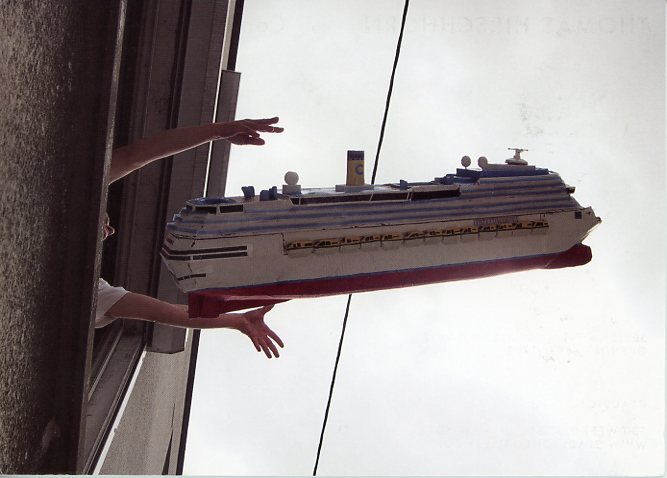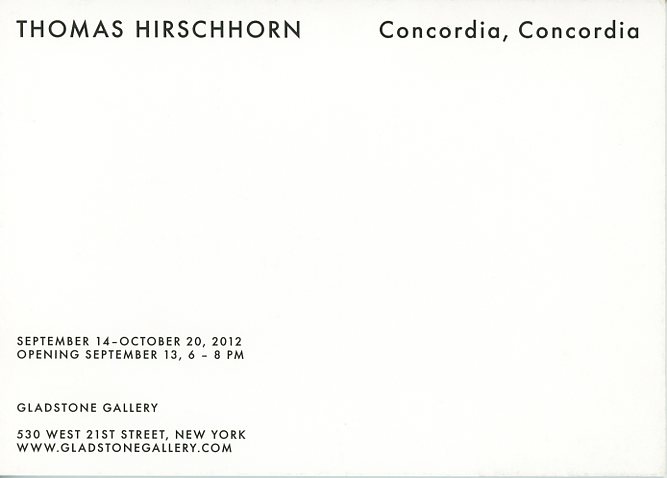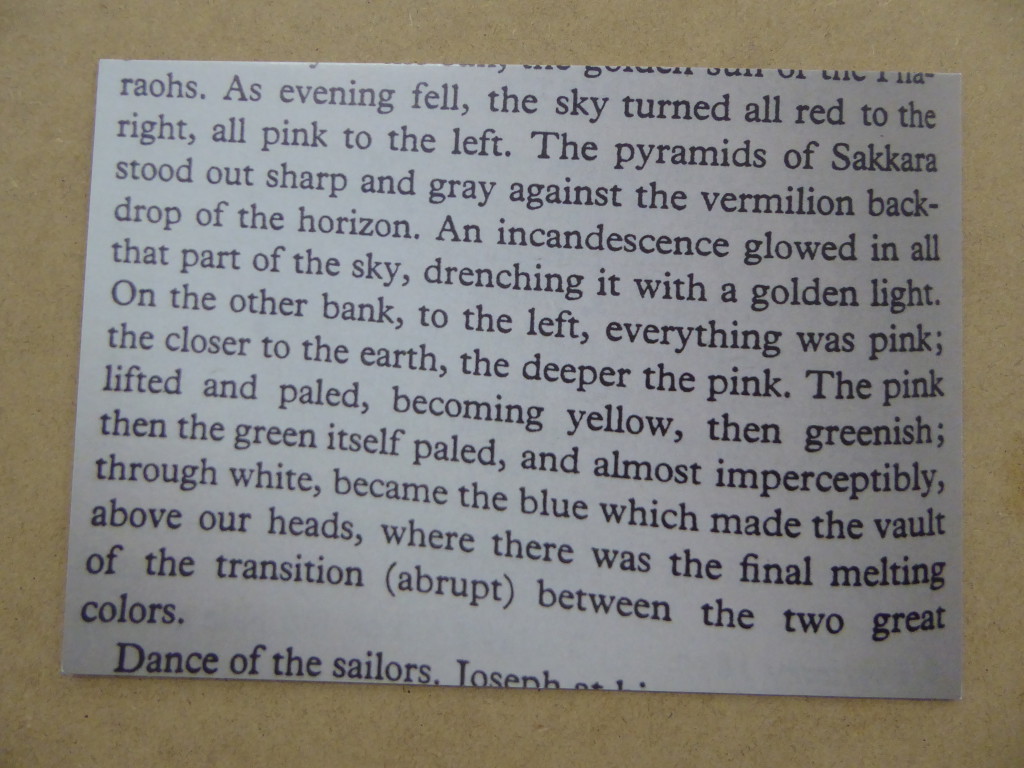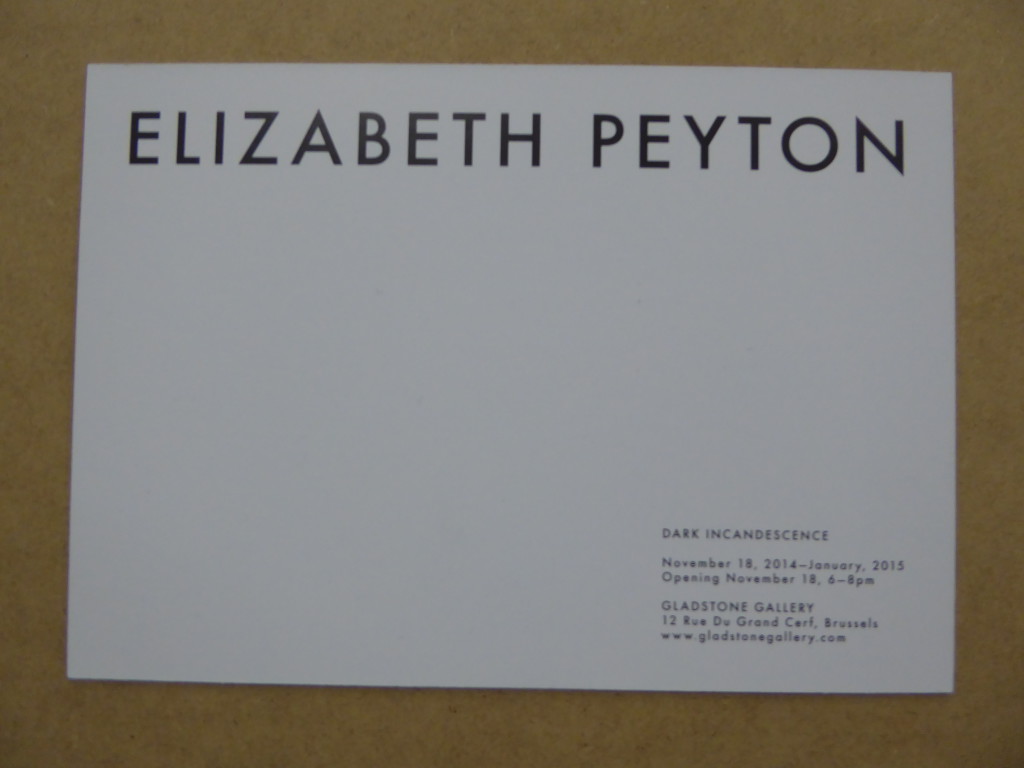

Thomas Hirschhorn’s invitation card for his exhibition Concordia, Concordia at Gladstone. On 13 January 2012 at 21:45, the cruise ship Costa Concordia stuck a rock in the Tyrrhenian Sea off the eastern shore of Isola de Giglio. 32 people died.
Press release: Gladstone Gallery is pleased to present the exhibition “Concordia, Concordia” by Thomas Hirschhorn. The exhibition features a large-scale work inspired by the sinking of the cruise ship Costa Concordia, which ran aground off the coast of Italy in January 2012.
Artist’s Statement:
As many people, I saw the pictures showing the inside of the sunken cruise ship Costa Concordia after the wreck. The floor emerging upright had become a wall, the wall was turned into a ceiling and the ceiling into the opposite wall. Every non-attached thing was floating in water, like a barricade in movement. A barricade made of all that points out the impassable and cumbersome inutility. I was struck by this apocalyptic upside down vision of the banal and cheap “nice, fake, and cozy” interior of the overturned ship. This pictures the uncertainty and precariousness of the past, of the present moment, and of the future. I saw it as an amusing and disturbing but nevertheless logical and convincing form. This must be the form of our contemporary disaster. This must be the ultimate expression of the precarious, which nobody wants to confront. “Get back on board, captain!” shouted the coast guard officer to the already safely landed captain of the Costa Concordia who refused to go back to his vessel. “Get back on board!” means there is definitely no escape – we have to confront the self-produced disaster in its incredible normality – there is no way out, there is no place to flee, there is no safe land anymore! This is the starting point that made me think of and start out to conceive the work “Concordia, Concordia.”
I want to do something Big. To do something Big does not mean to do something monumental or gigantic. If something is Big, it’s because it needs to be Big. One must understand that necessity as such or within its own logic. That’s why, when making things Big, I do it myself, with my own hands, with my own materials, with my own visual vocabulary and with my own work. I do it in order to avoid the “Blow-Up” effect and I do it to avoid falling into the trap of “Pumping the Size.” I want to do a Big work to show that the saying “Too Big to Fail” no longer makes any sense. On the contrary, when something is Too Big, it must Fail – this is what I want to give Form to. I want to understand this as a logic and this is the Form! This is what I want to explore, it is the grounding of my new work “Concordia, Concordia.” “Concordia, Concordia” brings back to mind the disastrous wreck of the cruise ship Costa Concordia and the images of the immersed ship in its confusing architecture. The flooded casino of consumption stands for evidence: the evidence of a coming disaster and the evidence of an announced failure. This is “Concordia, Concordia.” – Thomas Hirschhorn
 follow
follow
